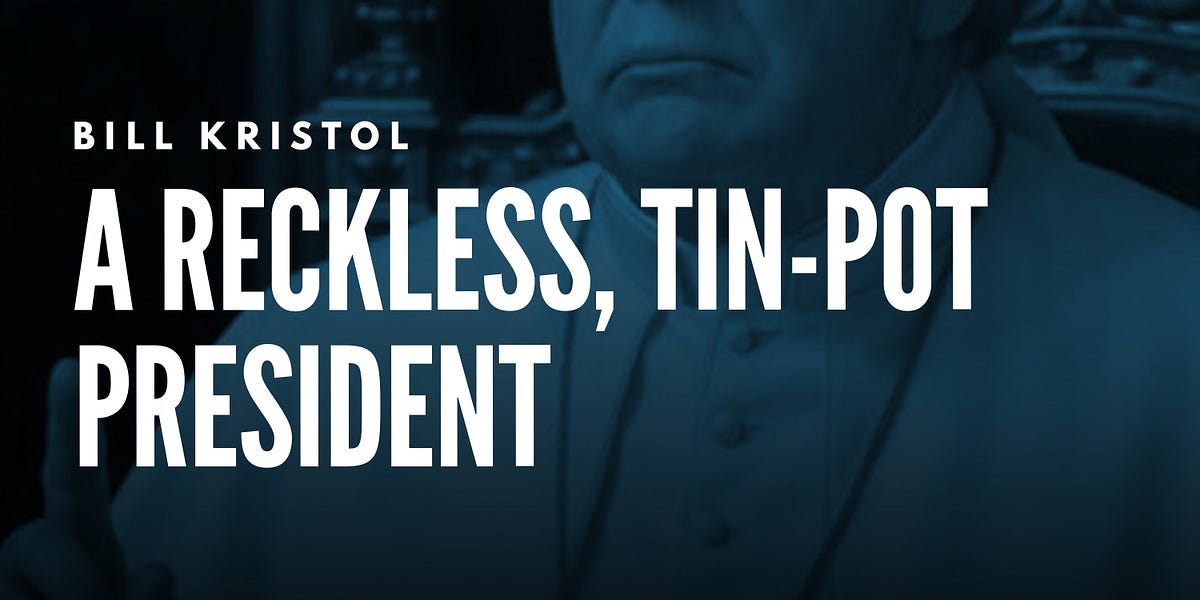
Bill Kristol: A Reckless, Tin-Pot President
May 5, 2025
CEO Makes Shocking Admission About Why He’s Buying Trump’s Memecoin
May 5, 2025Predicting how an episode of the HBO show The Rehearsal will end is nearly impossible. The pseudo-docuseries, in which the comedian Nathan Fielder stages elaborate exercises to help—or rather, “help”—ordinary people prepare for challenging interactions, tends to go down rabbit holes dictated by Fielder’s fixations. A Season 1 installment found him supporting a man who wanted practice having a difficult conversation only for the focus to shift to Fielder rehearsing his own confessions. Another saw Fielder open an acting studio; by the episode’s final scene, he’s the one performing, pretending to raise a 6-year-old boy.
The show’s second season has been even twistier. This time, Fielder has chosen to conduct every “rehearsal” as a way to solve what he believes is the primary reason for plane crashes: miscommunication. Each episode is meant to contribute to Fielder’s theory that if captains and their co-pilots could just get along, flying would yield fewer accidents. He comes off as genuinely impassioned by the subject, collecting reams of accident reports, poring over black-box transcripts, and consulting with John Goglia, a former National Transportation Safety Board member. But as Fielder notes in the season premiere, his history of being a mischief maker generates a “deficit of credibility”; he has to try harder to be taken seriously by airline-safety officials.
The grave stakes of his chosen topic probably explains why Fielder is taking even bigger swings this season. In Episode 3, which premiered Sunday night, he re-creates the life of Captain Chesley “Sully” Sullenberger, who successfully landed a plane in the middle of the Hudson River in 2009. Fielder’s endeavor is only tangentially relevant to his stated goal of helping pilots—making clear that, once again, he’s the actual subject of the rehearsals he’s conducting. Now, however, Fielder is trying to change his reputation too. The comedian is known for being a no-holds-barred prankster; as the host of Comedy Central’s Nathan for You, he executed nonsensical plans, such as a poo-flavored offering for a struggling frozen-yogurt shop, to save real small businesses. A question nags at him throughout The Rehearsal, in spite of all the control he has as the show’s creator, director, co-writer, and star: Can a noted troll ever assist people without mocking them? The pursuit of an answer results in a heady, often surreal interrogation of whether true sincerity is possible, especially for someone known for anything but.
At first, Nathan appears deeply committed to helping pilots—except that his commitment veers into the absurd almost immediately. He reads Sully’s memoir, highlighting sentences he finds relevant to his mission of creating cockpit synergy. A section in which Sully describes how his journey to saving the lives of 155 people began long before that consequential flight leads Fielder to an epiphany: If he can personally experience key moments from Sully’s life, then he might develop some of the captain’s traits.
The undertaking, Fielder posits, should make him a better advocate for airline safety. What happens after this revelation, though—some of the funniest and most disturbing television I’ve ever seen, involving Fielder, a 41-year-old man, pretending to be an infant while an enormous puppet handled by crew members plays Sully’s mother—has little to do with flying planes. But these silly scenes soon become strangely poignant. Fielder’s attempt to vanish into his portrayal of Sully is so seemingly earnest that the episode ends up mimicking a prestige biopic. As Fielder’s Sully “ages,” the score becomes operatic; a gravelly voiced actor reads from Sully’s memoir, injecting a dose of gravitas. When Fielder finds evidence that Sully may have been listening to Evanescence’s “Bring Me to Life” as he guided US Airways Flight 1549 to its water landing, he mines the song for a moment of high drama: Fielder as Sully closes his eyes while the chorus plays and warning lights flash around him. The sequence is preposterous, yet Fielder’s belief that he has come to think like Sully actually proves to be oddly moving instead of just odd—an example of how committing to the bit can make an inane detail feel like real intimacy.
The Rehearsal has always explored whether Fielder’s experiment to perfect reality is a delusion, but Season 2 suggests that what he’s actually questioning is whether he can stop being seen as only a clown, an idea that gives the show a fascinatingly serious streak. Sometimes, in his efforts to understand pilot psychology, he stumbles upon self-realizations: In Episode 2, he casts pilots as judges of a fake American Idol–esque singing competition; it’s a lesson in honest self-expression that is both a hilarious way to use HBO’s budget and a means for Fielder to challenge himself to practice authenticity alongside them. Further into the season, he notes that The Rehearsal received criticism for its past treatment of child performers, who were cast in emotionally demanding roles; the experience has made him wary of working with them again, he explains, before dismissing his concerns and recruiting child actors once more. He eventually admits that he’s not sure whether what he’s doing is necessary for anyone at all. “I can function just fine without rehearsing,” Fielder insists.
Still, he can’t quite break the habit of playing an intense game of pretend. The Rehearsal seems to argue that all of Fielder’s bizarre trials have a simple conclusion: that someone like Fielder—who is devoted to pushing the bounds of comedy and seems to revel in appearing as a caricature of himself in his shows—must inject humor into everything to contend with the severity of real life. The show implies that he’s far from alone when it comes to developing such coping mechanisms; The Rehearsal’s second season, though, is fundamentally a deep dive into one man’s existential crisis, wrapped in a study of disaster prevention. If that sounds bleak, even tasteless, look at it this way instead: Fielder is not unlike the pilots he’s studying, struggling to articulate himself under duress. By design, his exercises force him to confront his flaws and discover an inner confidence. He appears determined, to paraphrase Evanescence, to save himself from the nothing he’s become.
#Comic #Whos #Worst #Enemy
Thanks to the Team @ The Atlantic Source link & Great Job Shirley Li






